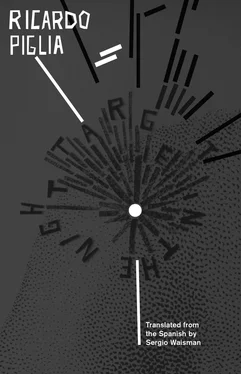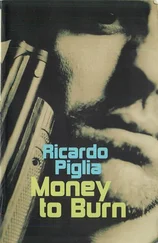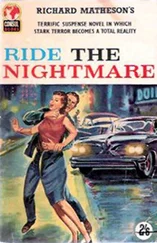Ricardo Piglia - Target in the Night
Здесь есть возможность читать онлайн «Ricardo Piglia - Target in the Night» весь текст электронной книги совершенно бесплатно (целиком полную версию без сокращений). В некоторых случаях можно слушать аудио, скачать через торрент в формате fb2 и присутствует краткое содержание. Год выпуска: 2015, Издательство: Deep Vellum, Жанр: Современная проза, на английском языке. Описание произведения, (предисловие) а так же отзывы посетителей доступны на портале библиотеки ЛибКат.
- Название:Target in the Night
- Автор:
- Издательство:Deep Vellum
- Жанр:
- Год:2015
- ISBN:нет данных
- Рейтинг книги:3 / 5. Голосов: 1
-
Избранное:Добавить в избранное
- Отзывы:
-
Ваша оценка:
- 60
- 1
- 2
- 3
- 4
- 5
Target in the Night: краткое содержание, описание и аннотация
Предлагаем к чтению аннотацию, описание, краткое содержание или предисловие (зависит от того, что написал сам автор книги «Target in the Night»). Если вы не нашли необходимую информацию о книге — напишите в комментариях, мы постараемся отыскать её.
is an intense and tragic family history reminiscent of
, in which the madness of the detective is integral to solving crimes.
, a masterpiece, won every major literary prize in the Spanish language in 2011.
Ricardo Piglia
Target in the Night — читать онлайн бесплатно полную книгу (весь текст) целиком
Ниже представлен текст книги, разбитый по страницам. Система сохранения места последней прочитанной страницы, позволяет с удобством читать онлайн бесплатно книгу «Target in the Night», без необходимости каждый раз заново искать на чём Вы остановились. Поставьте закладку, и сможете в любой момент перейти на страницу, на которой закончили чтение.
Интервал:
Закладка:
The town’s horse was a dapple gray that belonged to Payo Ledesma, a very good horse, retired, like a boxer who hangs up his gloves without ever having lost. A rancher from Luján with an undefeated sorrel had been trying to challenge him for some time. It seems at first Ledesma didn’t want to accept, but that he finally rose to the challenge, as they say, and accepted the call. Which is when someone looked over and got Tony involved. The other horse, the one from Luján, was named Tácito , and he had quite a history. Tácito was a purebred that had been injured and now couldn’t run more than three hundred meters at a time. He had started out in the racetrack in La Plata and had won in the Polla de Potrillos, but then one rainy Saturday afternoon, in the fifth race at San Isidro, he’d had an accident. On one of the turns he broke his left leg and was left damaged. He was the son of one of Embrujo’s sons. They wanted to put him out to pasture and just breed him, but the horse’s jockey — and trainer — stepped in and took care of him. Until, slowly, the horse was able to run again, damaged and all. Apparently they convinced the rancher in Luján to buy him and he had won every country race in which he had raced since. That was the story everyone told about him. The horse was truly impressive, a sorrel with white feet, surly and mean. He had ears only for his jockey, who spoke to him as if he were a person.
The horse was brought to town in an open pickup. When they let him out in the field the folks who had gathered watched from a respectful distance. A horse of great height, with a blanket on its back and one leg bandaged, spirited, surly, darting its wide eyes from fright or anger, like a true purebred.
“Yah,” Madariaga said. “Ledesma’s dapple gray against the undefeated sorrel from Luján. Something happened there.”

3 Tony’s older brother had died in Vietnam. The sun reflected off of his glasses as he was crossing a stream in the forest near the Mecong Delta, making him visible to a Vietcong sniper who killed him with a single shot — fired from such a distance that it went unheard. He died in battle, but his death was so unexpected and so peaceful that we thought he had died of a heart attack , said the condolence letter signed by Colonel Roger White, the ranting author in charge of writing these letters on behalf of the Military Assistance Command in Vietnam. The troops referred to Colonel White as the fucking poet . After the shot, the squad fell back into the rice fields, fearing an ambush. Tony’s brother was carried away by the current. They found him a week later, devoured by dogs and scavenger birds. Colonel White didn’t say anything about these circumstances in his condolence letter. As grace for his brother’s death, Tony wasn’t called up into the army. They didn’t want two dead brothers in the same family, even in a Puerto Rican family. His brother’s remains came back in a sealed, lead coffin. His mother was never certain that the body — buried in the military cemetery in Jersey City — was really her son’s.
4 The son of an officer of the Imperial Army who died hours before the signing of the Armistice, Dazai was born in Buenos Aires in 1946. Raised by his mother and his aunts, as a child he understood only feminine Japanese ( onnarashii ).
5 Sambos, mestizos of mixed Indian and black blood, were considered the lowest rung on the social ladder of the River Plate region.
6 “Tax evasion is due, primarily, to the activities of so-called carriers , known as such because they carry cash in briefcases. They offer better prices to suppliers, to the owners of the winter pastures, and to agricultural producers in general. They trade under the table and make out receipts to inexistent firms” ( La Prensa , February 10, 1972).
7 The best-known short-distance racer in the history of Argentina was Pangaré azul , property of Colonel Benito Machado. This horse won every race in which it ever participated. It died hanged in its stall due to some trainer’s carelessness.
3
It was a cool Sunday afternoon. Men from the farms and estancias from throughout the district lined up against the fence that separated the track from the surrounding houses. A couple of boards were placed over a pair of sawhorses to set up a stand to sell empanadas, gin, and a coastal wine so strong it went to your head just by looking at it. The fire for the grill was already lit, there were racks of ribs nailed on a cross, and entrails stretched out on a tarp laid out on the grass. Everyone was gearing up as if for a big fiesta; there was a nervous, electrified murmuring through the crowd, typical of a long-awaited race. There were no women in sight, only males of all ages, boys and old men, young men and grown men, wearing their Sunday best. Laborers with embroidered shirts and vests; ranchers with suede jackets and scarves around their necks; young men from town with jeans and sweaters tied at their waists. Large numbers of people milling about. The betting started right away, the men holding bills in their hands, folded between their fingers, or behind the headbands of their hats.
A lot of men from out of town came to watch the race, too, and they were all gathered toward the end of the track, at the finish line, near the bluff. You could tell they weren’t from the area by how they moved, cautiously, with the uncertain step of someone not on home turf. The loudspeakers from the town’s advertisement company— Ads, auctions, and sales. The voice of the people —played music first, then asked for a round of applause for the judge of that afternoon’s race: Inspector Croce.
The Inspector arrived wearing a suit and a tie and a thin-brimmed hat. He was with Saldías the Scribe, who followed him around like a shadow. Some scattered applause sounded.
“Long live the Inspector’s horse!” a drunk yelled.
“Don’t get smart with me, Cholo, or I’ll throw you in jail for contempt,” the Inspector said. The drunk threw his hat in the air and shouted:
“Long live the police!”
Everyone laughed and the atmosphere eased up again. Croce and the Scribe very formally measured the distance of the track by counting the requisite number of steps. They also placed a linesman on either side, each holding a red towel to wave when everything was set.
During a break in the music, a car was heard driving up at full speed from behind the hill. Everyone saw Durán driving Old Man Belladona’s convertible coupe with both sisters beside him in the narrow front seat. Redheaded and beautiful, they looked as if they hadn’t gotten enough sleep. While Durán parked the car and helped the young ladies out, the Inspector stopped, turned around to look at them, and said something softly to Saldías. The Scribe shook his head. It was strange to see the sisters together except in extraordinary situations. And it was extraordinary to see them there at all because they were the only women at the race (except for the country women selling empanadas).
Durán and the twins found a place near the starting line. The young women each sat on a small canvas folding chair. Tony stood behind them and greeted people he knew, and joined in making fun of the out-of-towners who had crowded together at the other end of the track. His thick, black hair, slicked back, shone with some kind of cream or oil that kept it in place. The sisters were all smiles, dressed alike, with flowery sundresses and white ribbons in their hair. Needless to say, had they not been the descendants of the town owner, they wouldn’t have been able to move about with so much ease among all the men there. They, the men, looked at the Belladona sisters out of the corner of their eyes with a combination of respect and longing. Durán was the one who’d return the looks, smiling, and the men from the countryside would turn around and walk away. The two sisters also immediately started betting, taking money out of a diminutive leather purse that each carried around her shoulder. Sofía bet a lot of money on the town’s dapple gray, while Ada put together a stack of five-hundred and one-thousand bills and played it all on the sorrel from Luján. It was always like that, one against the other, like two cats in a bag fighting to get out.
Читать дальшеИнтервал:
Закладка:
Похожие книги на «Target in the Night»
Представляем Вашему вниманию похожие книги на «Target in the Night» списком для выбора. Мы отобрали схожую по названию и смыслу литературу в надежде предоставить читателям больше вариантов отыскать новые, интересные, ещё непрочитанные произведения.
Обсуждение, отзывы о книге «Target in the Night» и просто собственные мнения читателей. Оставьте ваши комментарии, напишите, что Вы думаете о произведении, его смысле или главных героях. Укажите что конкретно понравилось, а что нет, и почему Вы так считаете.












